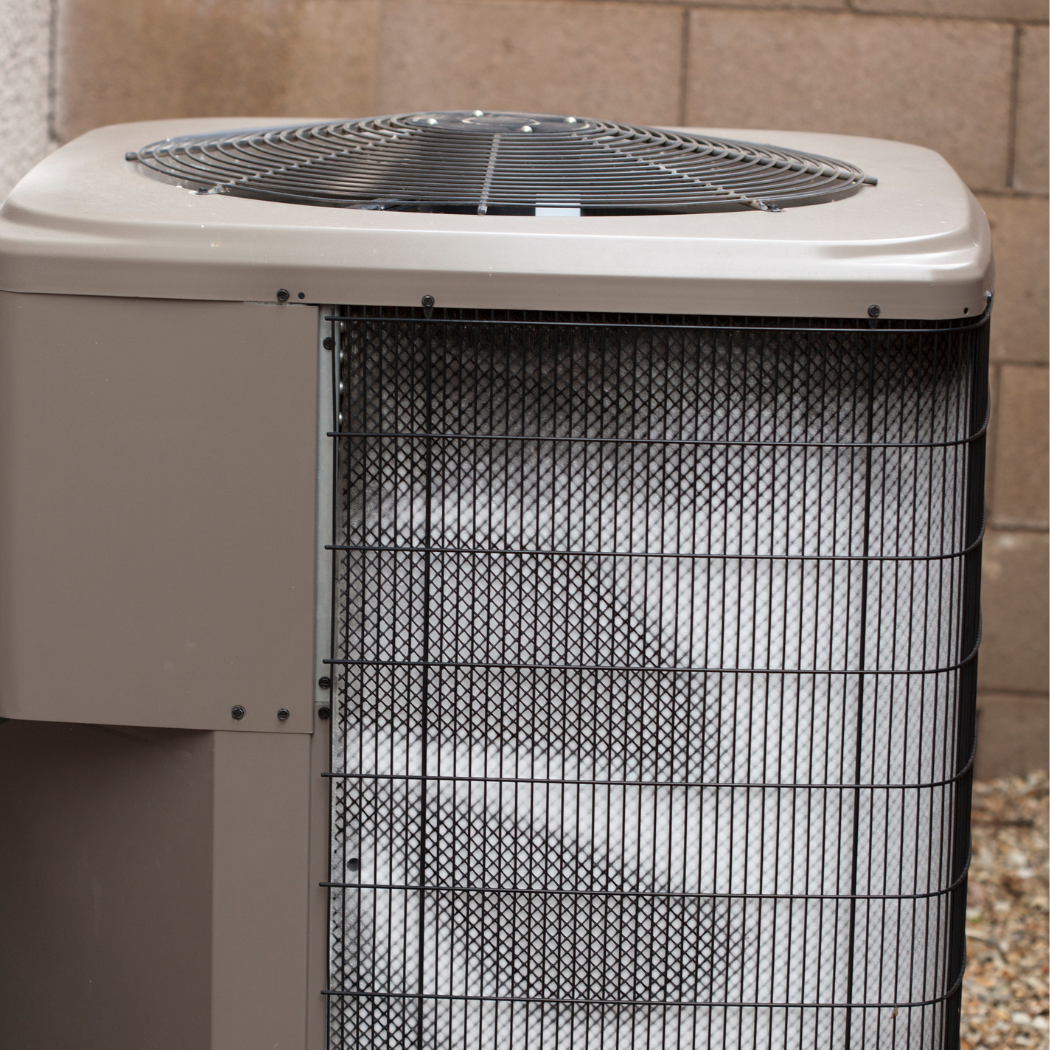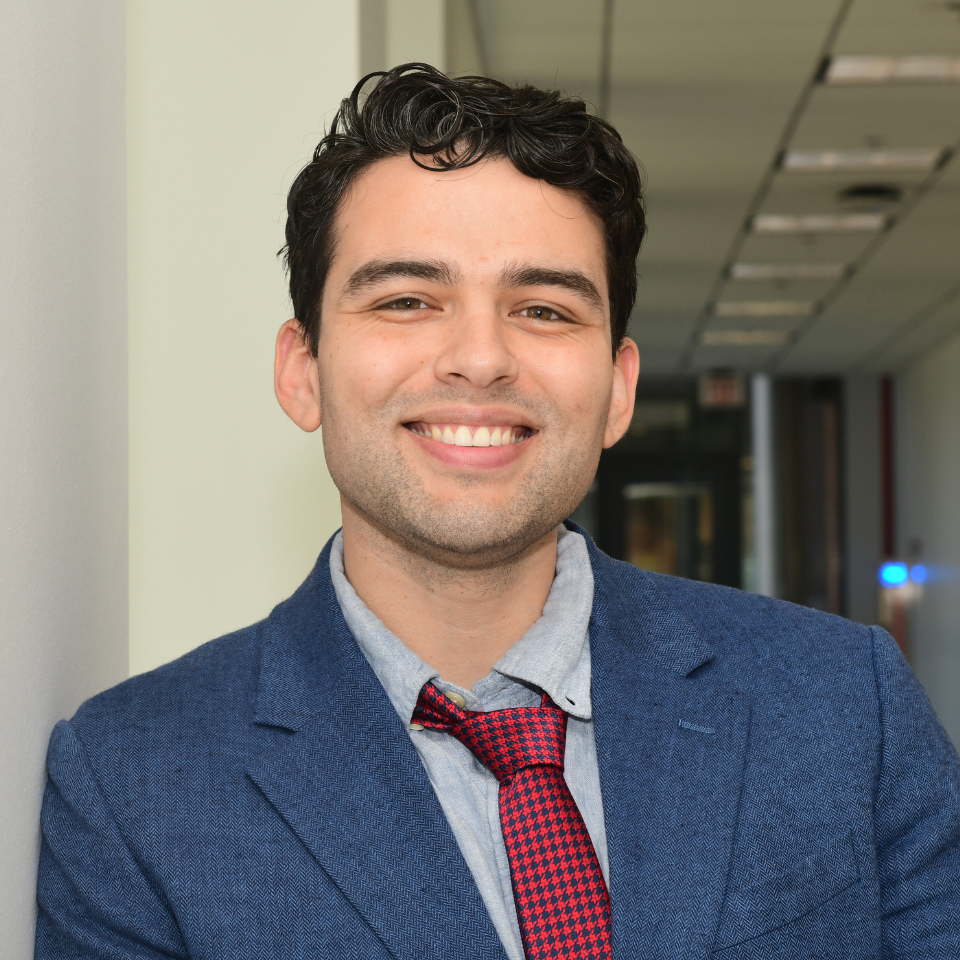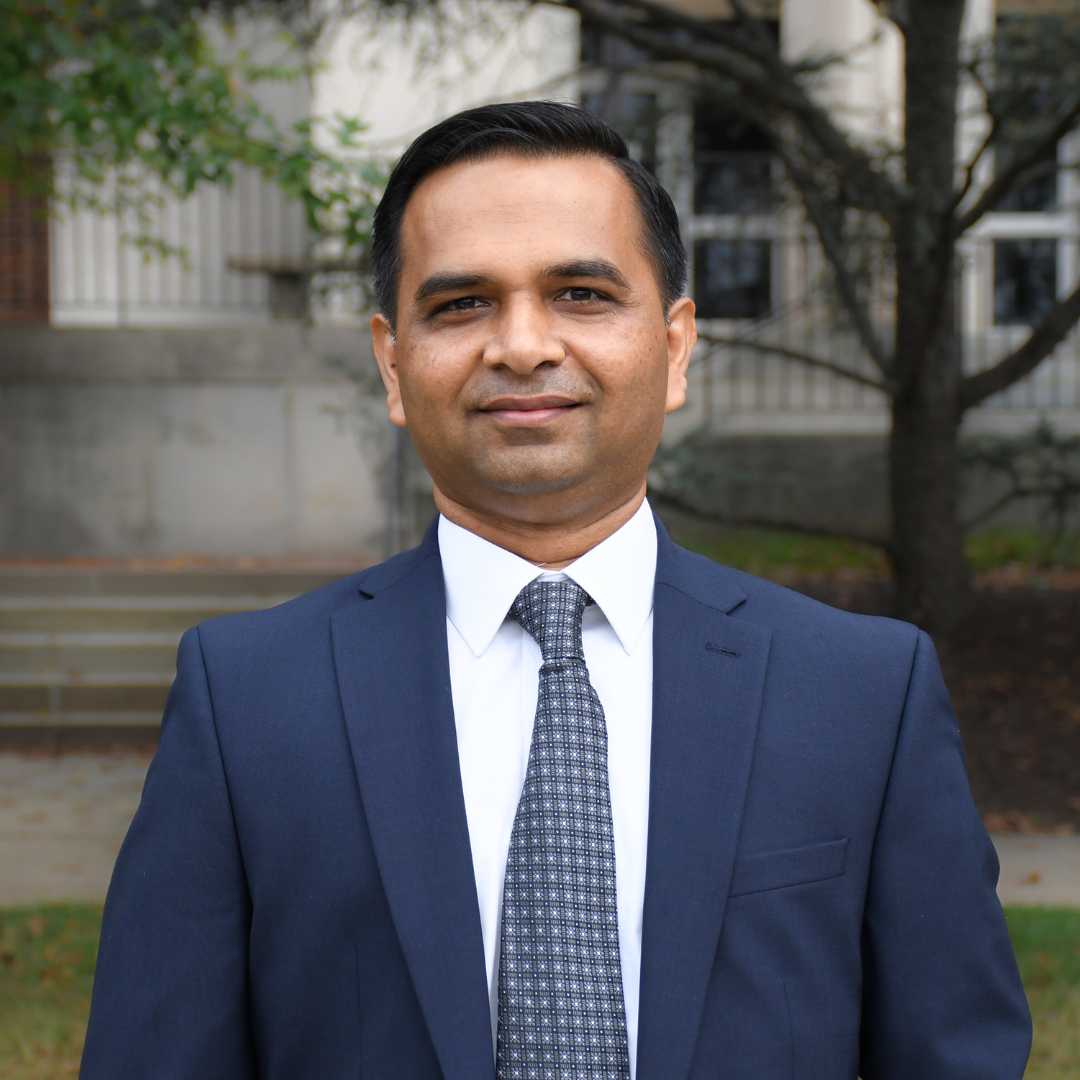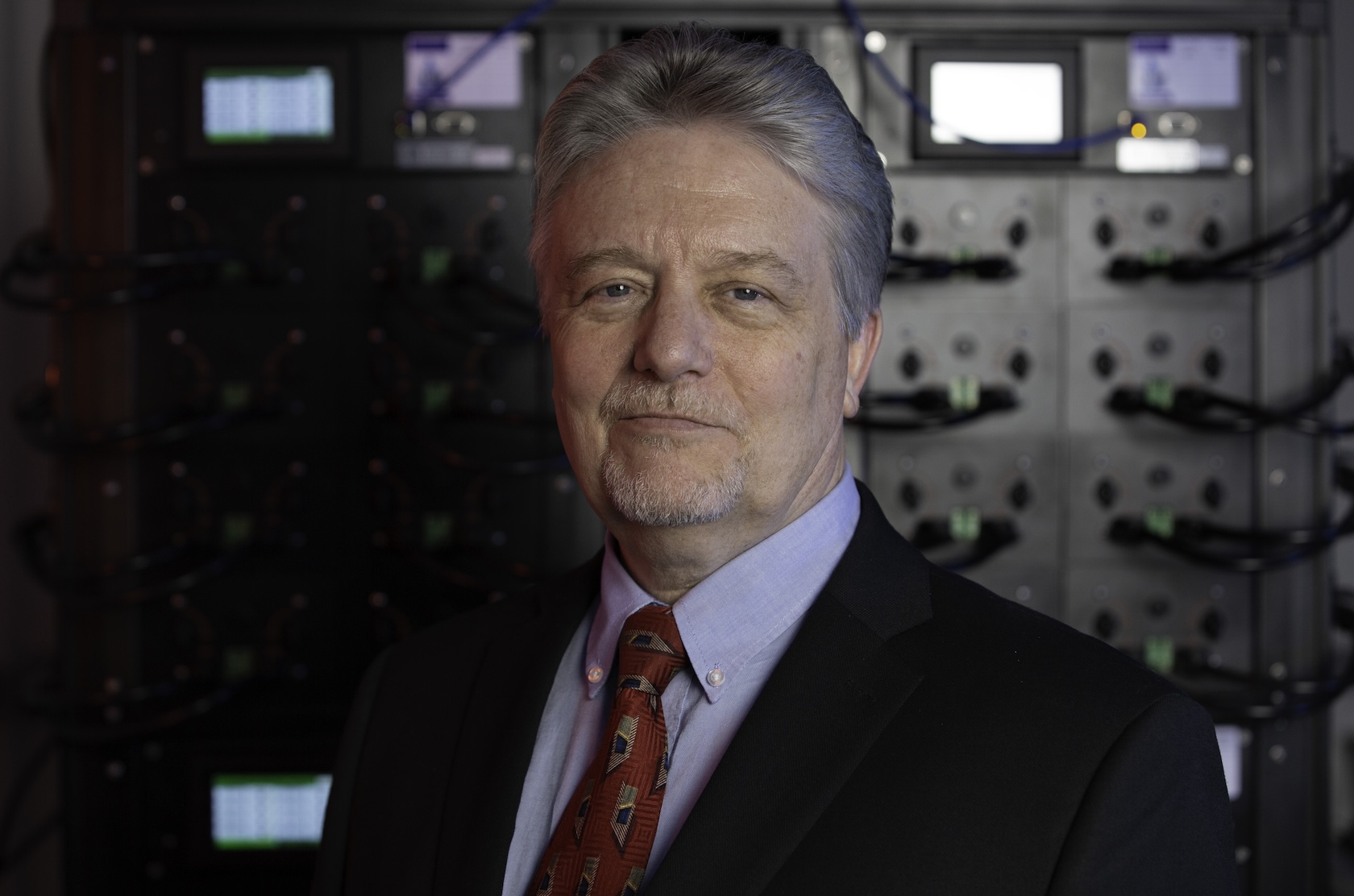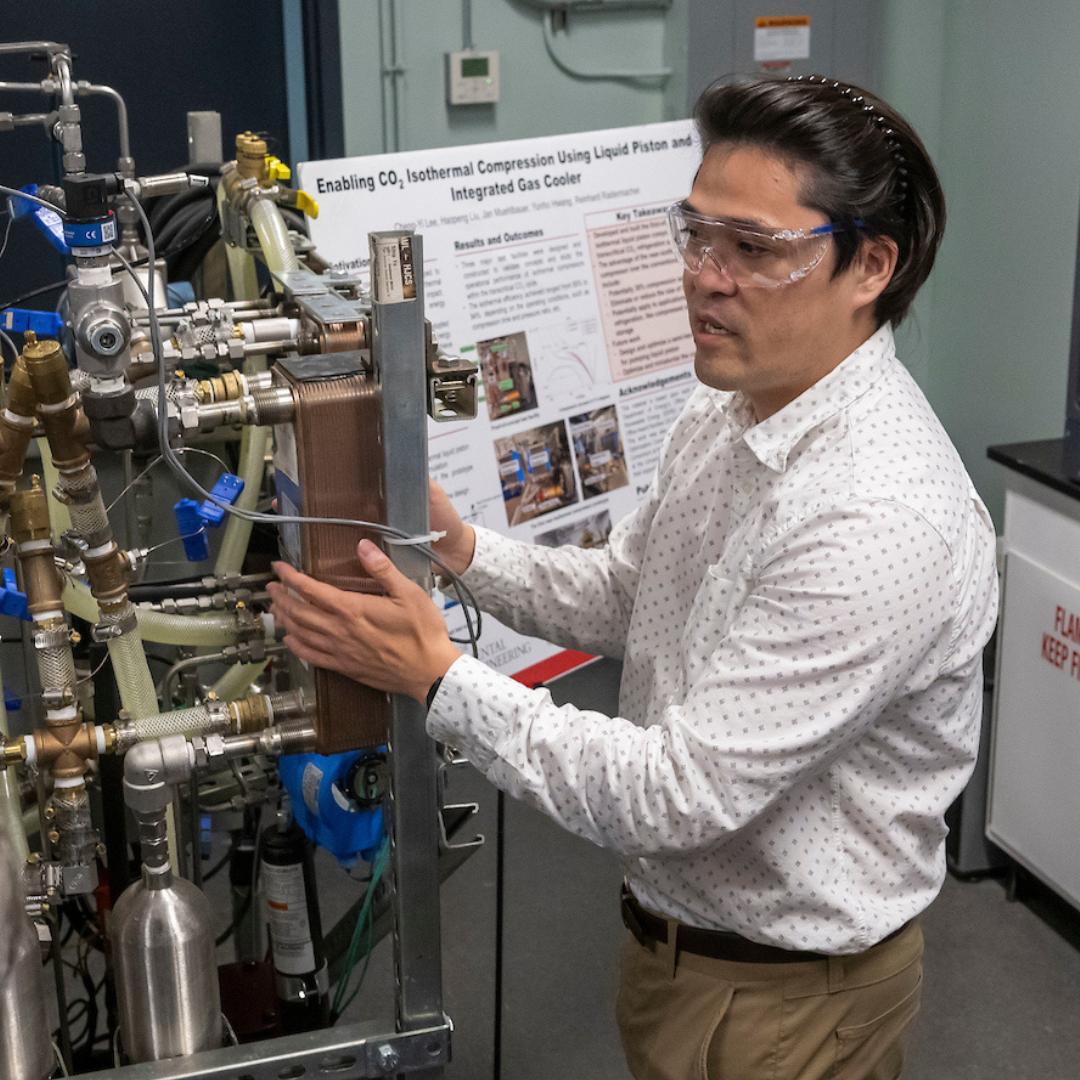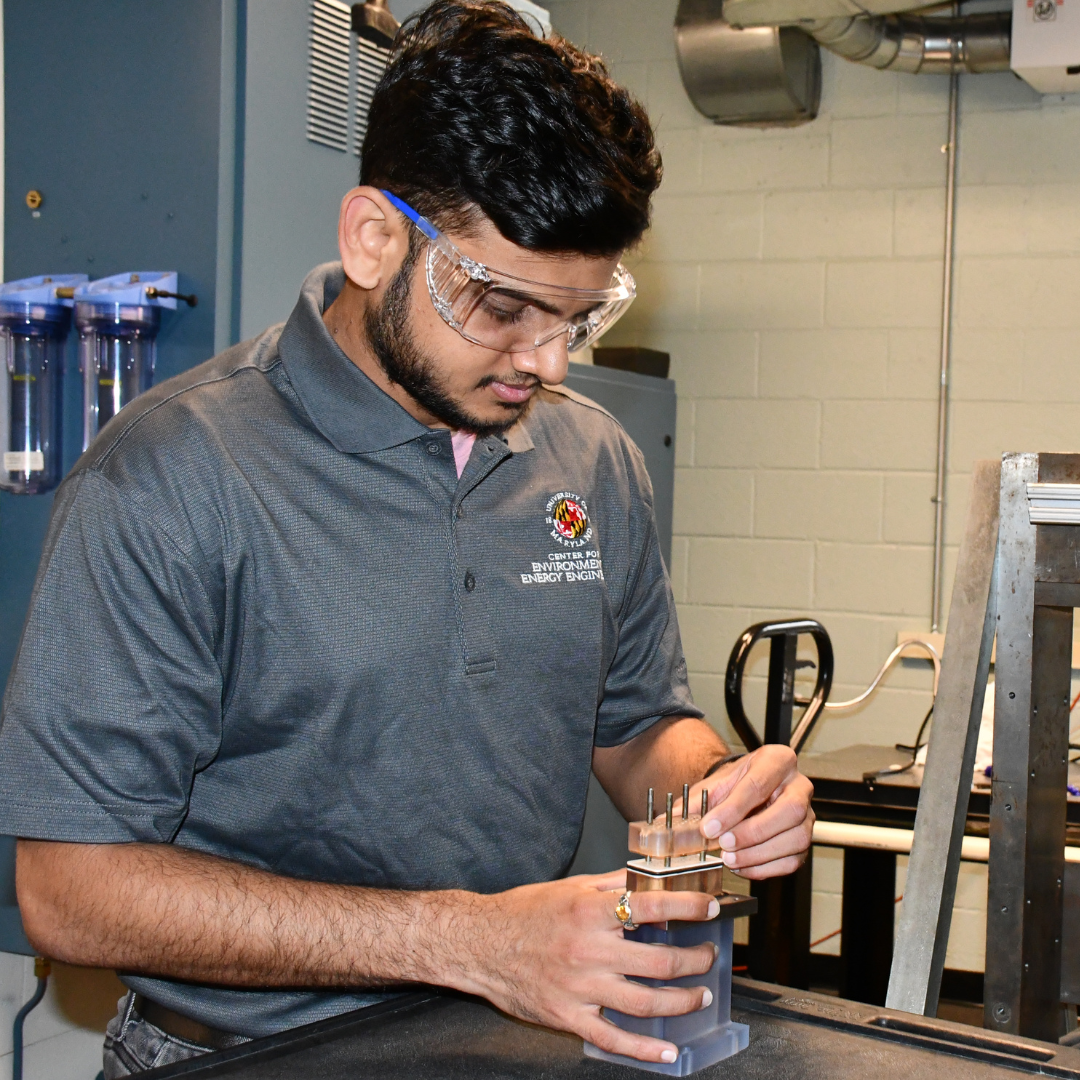News Story
David Catalini Awarded Graduate Student Summer Research Fellowship

Ph.D. student David Catalini has been awarded a University of Maryland Graduate School Summer Research Fellowship, which enables doctoral students to devote a summer of focused work to prepare for or complete a benchmark in their program. In Catalini’s case he is continuing his current research, while preparing to defend his proposal and advance to candidacy. The fellowship also awarded him a $5,000 stipend.
Catalini works in the Heat Pump Lab at the Center for Environmental Energy Engineering and is co-advised by Dr. Reinhard Radermacher (Mechanical Engineering) and Dr. Ichiro Takeuchi (Materials Science and Engineering).
Catalini plans to make significant strides in his research on elastocaloric cooling this summer. His work focuses on testing the maximum cooling capacity of this technology and finding the best way to connect two systems in a series to increase simultaneous temperature lift and cooling capacity. This would allow enough cooling capacity and lift to operate a small wine cooler, a significant milestone for this type of solid-state cooling system.
“I am very happy to have gotten the award, it is very encouraging to have my idea supported by the department and the professors.”
David Catalini
During the summer and the time left in his program, Catalini wants to introduce a new approach to system design and operation, to lay the base for future system engineering work or future material research. This new system would be composed of a spring-damper and an oscillating mass block of steel. The elastocaloric material serves as a spring and damper (because of the hysteresis of the phase transformation), and an oscillating mass will serve as the inertial counterpart. The system will be designed to match to the mechanical resonance frequency of the spring-mass-damper system to the optimal thermal performance operating frequency and exploit the synergy between them. Operating at resonance frequency will allow for the inertial forces to take on the heavy lifting, allowing usage of a smaller driving system.
“I am very happy to have gotten the award, it is very encouraging to have my idea supported by the department and the professors,” Catalini said. “Until we build things and verify they happen we can’t be 100% sure everything will go as planned, but all we can do is take one step at a time and this award is helping me take this first step.”
Published April 24, 2019



